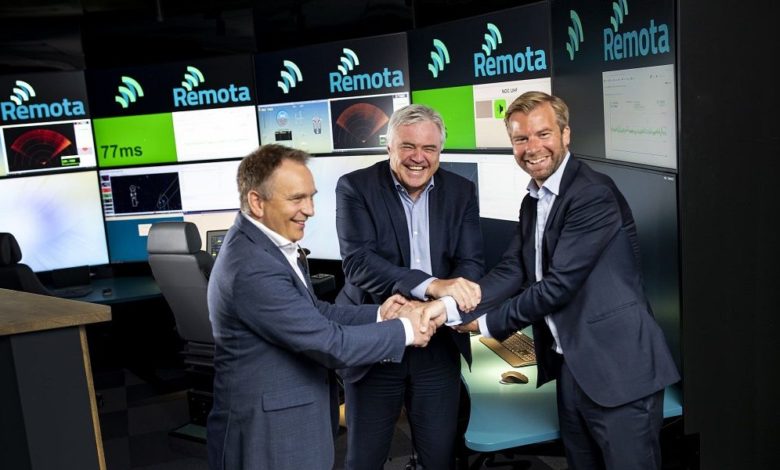Norwegian offshore trio targets unmanned vessels

Norwegian offshore vessel owners Solstad Offshore and Østensjø, together with services provider DeepOcean, have established two joint ventures to support remotely managed services and reduce operating costs and emissions for the marine and offshore industries.
One of the JVs, named Remota, will own and operate onshore remote operations centers, while the other JV will develop, own and operate unmanned surface vessels (USVs). The three partners will each own 33.33% in the two JVs.
“Solstad, DeepOcean and Østensjø already have the technologies, competence and assets in place, but teaming up will further enhance the capacity, growth prospects and market penetration of our remote operations offering. Operators of offshore energy assets have challenged the supplier industry to deliver even more cost-efficient services. This is our response,” said Lars Peder Solstad, CEO of Solstad Offshore.
Remota will be led by DeepOcean’s Sveinung Soma and offer remote operations and semi-autonomous maritime services to existing vessels, remote operations of remotely operated vehicles (ROVs) and USVs, while its first remote operations center will function as a control center for drone technologies. Today the center operates DeepOcean’s ROVs from Haugesund, Norway, and has been in operation since 2019.
The center will operate independently of its three owners and offer its services to all operators, vessel owners and service companies worldwide. The center will initially offer its services to offshore shipping companies and ROV operators, with the aim of expanding to other industries as well.
The second JV firm, USV AS, will invest in unmanned vessels equipped with work-class ROVs and capable of considerably reducing operating expenses compared to conventional vessels that are utilised for subsea inspection, maintenance and repair work.
The USV technology has been developed by DeepOcean, and the two other partners have been involved in the final stage of the development. It is estimated that the USV solution can reduce CO2 emissions by more than 90% compared to a conventional offshore vessel when conducting subsea operations.
“By introducing USVs, we are moving the captain onshore who will remain in control over the offshore operations. This is an excellent way of reducing costs and the CO2 footprint. Limiting personnel exposure to offshore operations also introduces a brand new safety aspect. It also represents a significant business potential for the JV,” remarked Øyvind Mikaelsen, CEO of DeepOcean.

Owners laugh hard! while seafarers operating their ships cry!